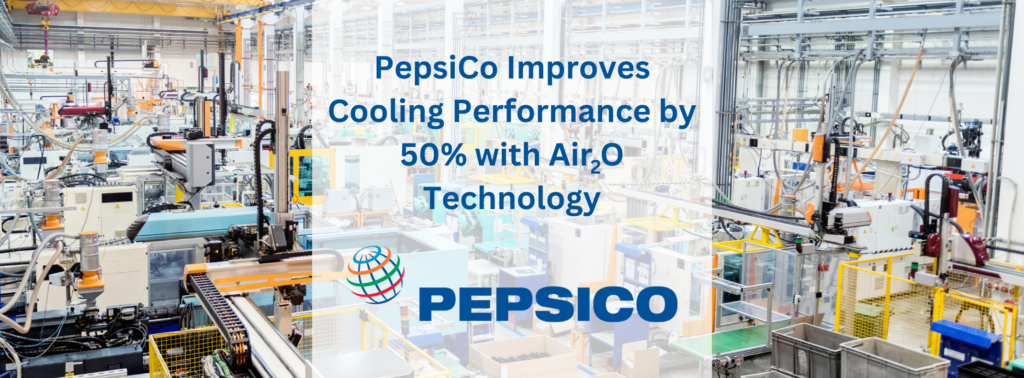The Challenge
PepsiCo produces high levels of heat on their production lines, which makes it nearly impossible to cool. They have used direct evaporative cooling to cool the building for years, but this has not been effective during the summer months. The main challenge was providing sufficient cooling on the production line, which is raised over 10 feet from the main floor and is, therefore, even warmer and more difficult to cool properly.

